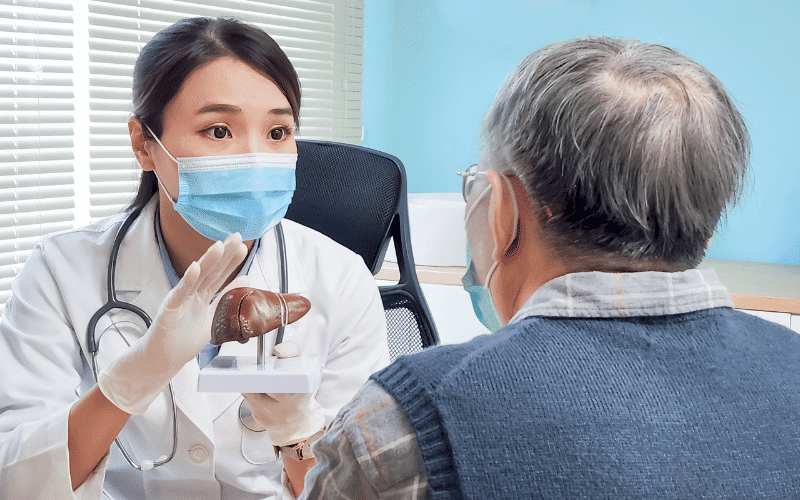Frequently Asked Questions about Liver Cirrhosis Diet

1. Can dietary changes reverse liver cirrhosis?
While dietary changes cannot reverse liver cirrhosis, they can help manage the symptoms and slow down the progression of the disease. A balanced and nutritious diet can support liver function, reduce inflammation, and promote overall well-being in liver cirrhosis patients. It’s essential to consult with your healthcare provider or a registered dietitian before making significant changes to your diet.
2. Are there any foods I should avoid if I have liver cirrhosis?
Yes, there are certain foods that you should avoid or limit if you have liver cirrhosis. These include high-fat and fried foods, excessive amounts of salt, processed foods, and alcohol. It’s crucial to maintain a balanced diet and focus on consuming nutrient-dense foods that support liver health.
3. How can I ensure I’m getting enough protein in my liver cirrhosis diet?
Consuming adequate protein is essential for liver cirrhosis patients. To ensure you’re getting enough protein, include a variety of protein sources in your diet, such as lean meats, poultry, fish, legumes, and dairy products. It’s essential to consult with your healthcare provider or a registered dietitian to determine the appropriate amount of protein for your specific needs.
4. Can I take supplements to support my liver health?
While some supplements may help support liver health, it’s crucial to consult with your healthcare provider before starting any new supplements, as they may interact with your current medications or cause unintended side effects. Your healthcare provider can help you determine if supplements are appropriate for your specific needs and recommend the most suitable ones.
5. Can I still consume alcohol if I have liver cirrhosis?
It is highly recommended to avoid alcohol if you have liver cirrhosis, as it can cause further damage to your liver and worsen the progression of the disease. If you struggle with alcohol consumption, consider seeking support from a healthcare professional, counselor, or support group to help you quit.
6. How often should I see my healthcare provider to monitor my liver health?
The frequency of monitoring your liver health depends on the severity of your liver cirrhosis and your overall health. It’s essential to follow your healthcare provider’s recommendations for appointments and monitoring. Regular check-ups can help ensure your liver health is maintained and any potential complications are addressed promptly.
Conclusion: Nourish Your Liver with a Liver Cirrhosis Diet
In summary, adopting a liver cirrhosis diet rich in the 15 best foods for liver health can help support your liver’s function and overall well-being. These foods, including fatty fish, leafy greens, nuts and seeds, berries, olive oil, whole grains, green tea, cruciferous vegetables, avocado, spinach, legumes, turmeric, and garlic, provide essential nutrients, antioxidants, and anti-inflammatory compounds that protect the liver from damage and support its overall function.
By regularly consuming these liver-protecting foods, you can help manage the symptoms and progression of liver cirrhosis and support your liver’s health and overall well-being. Remember, it’s essential to consult with your healthcare provider or a registered dietitian before making significant changes to your diet, especially if you have liver cirrhosis or other health conditions.